One factor that many people find troubling about addiction rehabilitation treatment involves detoxification. “What happens?” “Is it like I’ve seen in the movies?” “How long will it last, and how bad will it be?” These are valid questions. In this article, we provide a better understanding of medical detoxification and why it helps you or a loved one move more quickly into healing.
Why Detox Is Important
According to the Recovery Research Institute, “Ultimately, much like other chronic diseases, addiction is preventable and treatable, but it does change one’s biology and can last a lifetime if it goes untreated.”
People with substance use disorder (SUD) or alcohol use disorder (AUD) experience alterations in their brain chemistry and physiology. Stopping suddenly or without proper supervision is probably the worst action someone can take when they’re ready to be healthy. The mind and body are too reliant on the artificial effects and damage caused by alcohol and drugs.
Think of how a car reacts when brakes are applied with a quick and forceful motion—sure, it may slow down or even stop, but not without jolting and system breakdown. Your mind and body also need a gradual, controlled release from toxicity to advance through recovery. It may take only a few hours after not using drugs or alcohol for someone to experience severe or even life-threatening withdrawal symptoms.
Medical experts agree that once people require alcohol or drugs to function every day, their dependency causes complications such as:
- Compromises to brain chemical and neurotransmitter function, which in turn prohibits proper cognitive ability and behavioral responses; and feeds the compulsion to use illicit substances.
- Imbalances in or damage to the autonomic nervous system, which regulates numerous processes in the body, including breathing and heart rate; control over digestion, waste elimination, circulation, and pain response; and production of important fluids.
- An increased risk of pancreatitis, liver failure, respiratory arrest, stroke, or heart attack.
- A greater chance of organ damage, hemorrhagic stroke, coronary heart disease, obesity, and cancer, especially for women.
However, because addiction is a disease and affects each person differently, not everyone requires the same type of detoxification.
When Detox Is Necessary
If medical professionals at a treatment facility determine your SUD or AUD caused mental or physiological impairment, they’ll evaluate the need for medically supervised detox and if so, to what degree. Physical stabilization helps prepare the body and mind for gradual, effective recovery.
You might require a detoxification protocol if there’s evidence of:
- Abuse of multiple substances, such as opioids and alcohol
- Co-occurring conditions, such as binge eating disorder, depression, anxiety, or PTSD
- Chronic or acute health conditions that either aren’t managed well or may be life-threatening
- Extensive or long-term substance abuse
- Relapse from previous rehabilitation
But physical addiction detox is only one part of the process. During this assessment, it’s critical that your treatment also includes a continuum of care plan. This is the recommended course of action for emotional and psychological rehabilitation after toxins are removed from your body. Your care plan may include group and individual therapy, 12-Step meetings, and other applications that support your sobriety.
What to Expect During Medical Detox
Understandably, the questions we highlighted above are just a few of the numerous concerns people have about addiction treatment. Pop culture is riddled with terrifying stories about what someone might go through purging chemicals from their system. But what happens during a medically-guided detox, while initially uncomfortable, doesn’t have to be frightening when you know what to expect.
The discomfort you may feel while going through physical detoxification depends on three factors:
- Types of substances used
- Length of addiction
- Intensity of addiction
You may or may not experience the following during detox:
- Anxiety or depression
- Body aches, headaches, and fever
- Wakefulness and/or fatigue
- Persistent nausea and vomiting
- Welts, acne, or rashes
- Muscle spasms or shakiness
- Increased appetite
- Moodiness and irritability
- Delirium tremens, often referred to as DTs, which makes a person experience misinterpretation and confusion
- Hallucinations or paranoia
The timeframe for detoxification varies by individual. Some people discover they feel better after only a few days. Others may need up to three weeks for their bodies to eliminate toxins and return to a general state of ease. But here’s a critical fact: the greater the intensity of substance abuse, the longer it takes to detoxify. Individuals with excessive cases of SUD or AUD might require more comprehensive inpatient treatment and experience withdrawal symptoms for up to two years.
During a medically managed detoxification process, you’ll have doctors and nurses supervising your experience, and perhaps advising a medication protocol to help alleviate symptoms. These professionals might also help with other health complications. Proper nutrition and hydration are critical components of the process as well. A medical detox administered by credentialed addiction specialists makes the process safe, comfortable, and effective.
So there’s nothing to fear: detoxification may just be the first step in your eventual healing. Once your body feels better and you’re not experiencing intense cravings, you’ll begin the next phase of healing: emotional and mental stabilization. For true wellness, it’s critical to determine the root causes contributing to addiction and find healthy ways to maintain your sobriety.
Find Quality Care at Northern Path Detoxification is the gateway to your return to health. Throughout your recovery journey, you’ll uncover new layers of resiliency and continue to progress. Remember, this is your plan for life. Each step forward you take matters. If you’re ready to begin, contact our team at Northern Path Recovery Center in Fort Wayne, IN. We can help.








